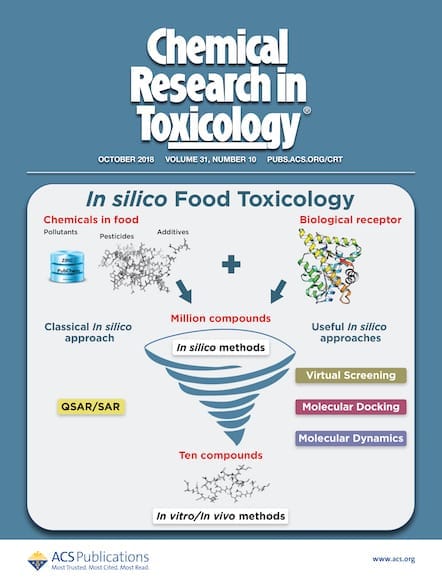ACS is proud to announce ETH Zürich Professor Shana J. Sturla as the new Editor-in-Chief of Chemical Research in Toxicology. The distinguished peer-reviewed journal celebrated its 30th anniversary in 2017, and Sturla will become its head in January 2018. Sturla will succeed Professor Stephen S. Hecht, Ph.D., who has served as the journal’s editor since […]

ACS is proud to announce ETH Zürich Professor Shana J. Sturla as the new Editor-in-Chief of Chemical Research in Toxicology. The distinguished peer-reviewed journal celebrated its 30th anniversary in 2017, and Sturla will become its head in January 2018. Sturla will succeed Professor Stephen S. Hecht, Ph.D., who has served as the journal’s editor since 2013.
In 2014, Sturla received the journal’s Young Investigator Toxicology Award, and, in 2015, became the Vice President of the Swiss Society of Toxicology.
Since the inception of the journal Chemical Research in Toxicology, the field of toxicology has been transforming itself from an observational to a predictive science, building on our developing understanding of the chemical and molecular basis of adverse responses. Chemical Research in Toxicology has always had this concept at its core. More recently, researchers addressing a wider range of areas of toxicology are now aligning with this concept and advancing it at an accelerating pace. A major goal for me is therefore to broaden the scope of the journal in order to bring in contributions from researchers who want to communicate results with a real impact on advancing the predictive capacity of toxicology in many areas.
Hand-in-hand with the widening scientific scope is its increasing global reach, and I would like to increase international visibility and engagement so the journal can include the highest-quality science from around the world. Coming from a family who immigrated from Latin America to the United States, having been raised and educated in the United States, and now being a scientist and raising a child in Europe while having a research team and collaborators from around the world, the benefits of diversity and fostering global community are deep values for me.
The biggest opportunity is that we’ve put to rest the debate over a chemical and molecular mechanistic, data-driven approach to toxicology that integrates in vitro as well as computational strategies vs. observational animal studies. The dialog is changing from “whether” to do this to “how,” and very talented people are finding an opportunity to be innovative in topics relevant to Chemical Research in Toxicology.
But this opportunity is also one of the biggest challenges—the scientific framework I am explaining is incredibly difficult to achieve because of the inherent complexity of the relevant systems. Luckily, every paper in the journal need not address the problem in its entirety, but they are each a piece in the puzzle.
The other big challenge is not scientific; it is a social and political environment that ignores the important link between science and policy. This situation is especially pertinent for toxicology because of its direct relevance for regulations.
The science of Toxicology is the foundation of products and policies that impact the health and safety of humans and the environment. Chemistry is central to so many problems in Toxicology because it informs an understanding and prediction of adverse outcomes on the basis of structures and processes.
The journal and community can work together to include diverse topics that meet high scientific standards, and by promoting the creation of innovative tools and approaches to answer questions that are currently out of reach.
Where do you want CRT to expand?
Examples are modern molecular pathway and network-oriented models for toxic action, as well as studies centered on processes relevant to disease etiology. Toxicology is so diverse that something you hear a lot at Toxicology conferences is “I am not a Toxicologist, but….”, the point is that the research is relevant to Toxicology and the message that these studies fall within the scope of Chemical Research in Toxicology should reach scientists who do not self-identify as Toxicologists, but who are conducting research of extremely high interest and value to the community.
Other areas to see more of include Pharmacology, Environmental Toxicology, Nanomaterial Safety, and Neuro- and Immunotoxicology.
The journal will have several publication types that are geared for the particular scope or format of the work, for example, the Chemical Profile format is well suited for large systems-oriented analytical data sets that can be made available to the community to access and use for building better models of toxic responses.
